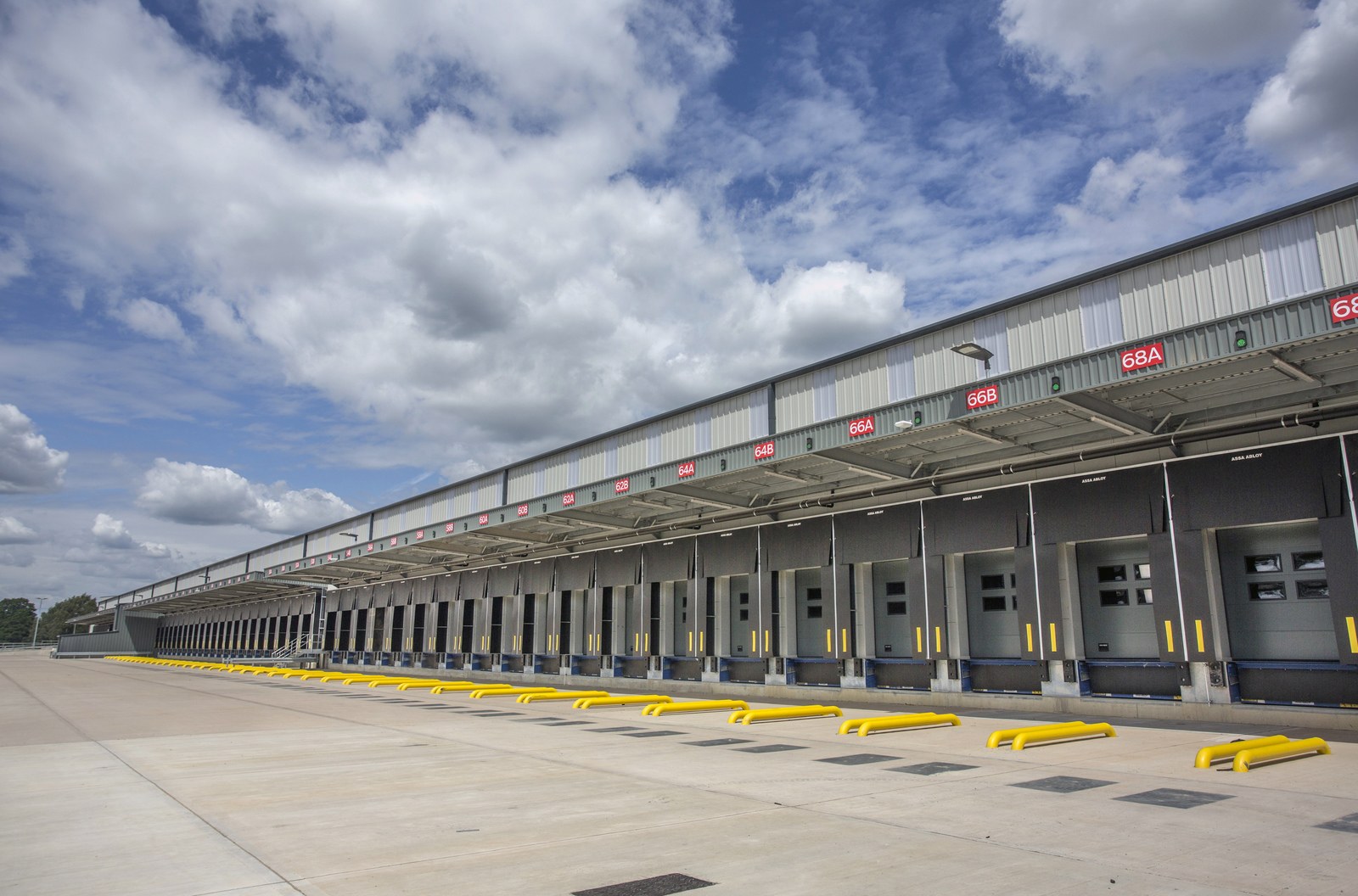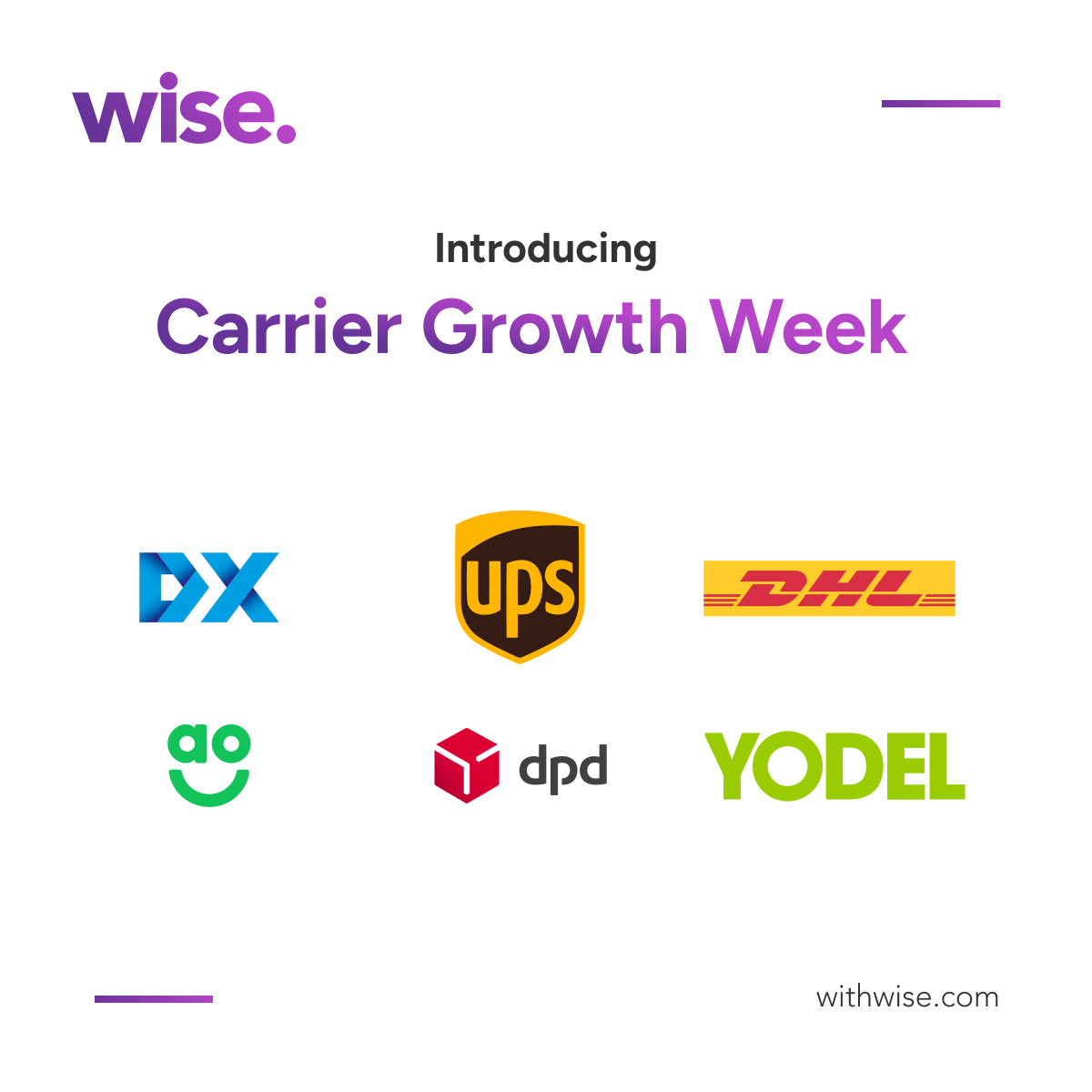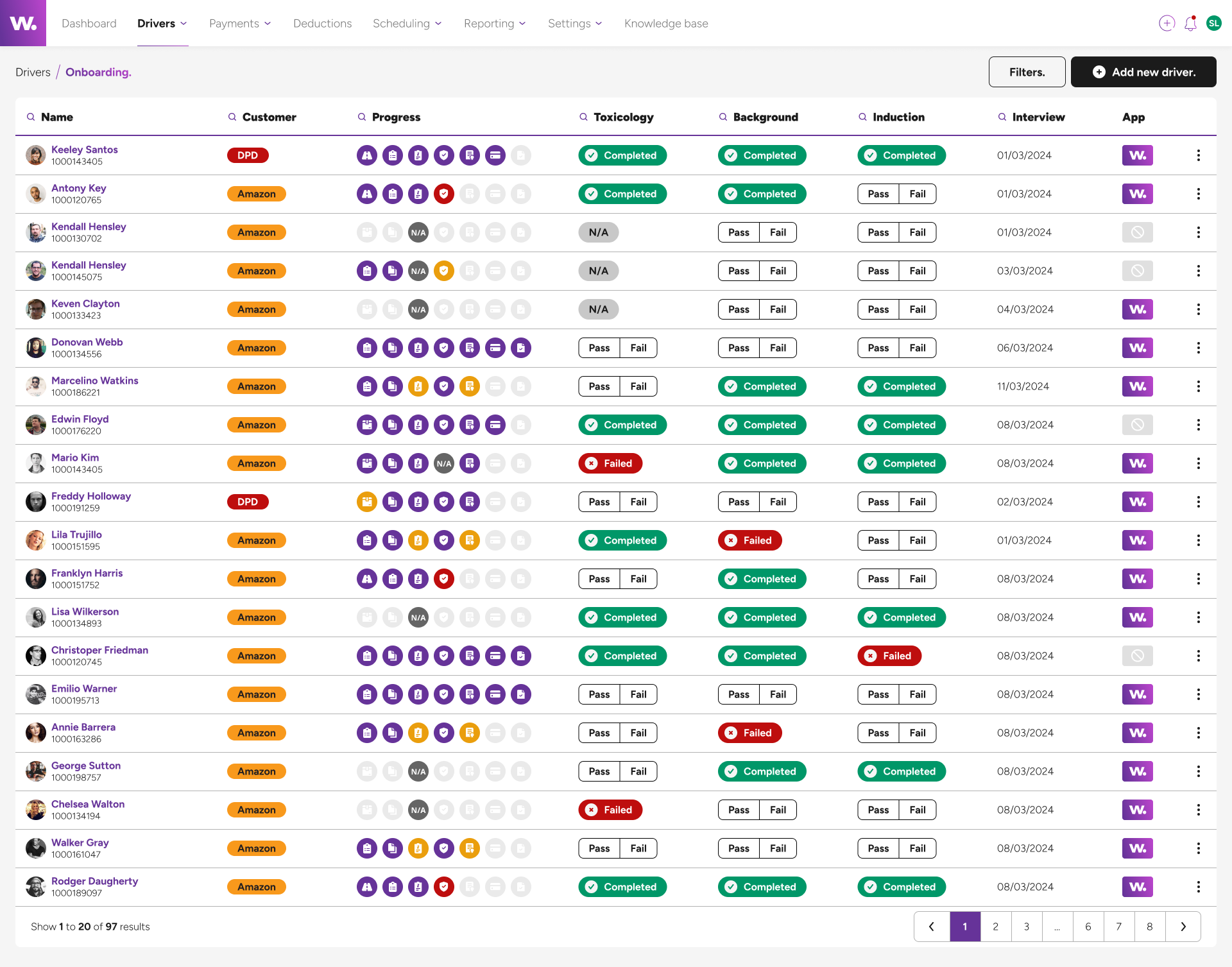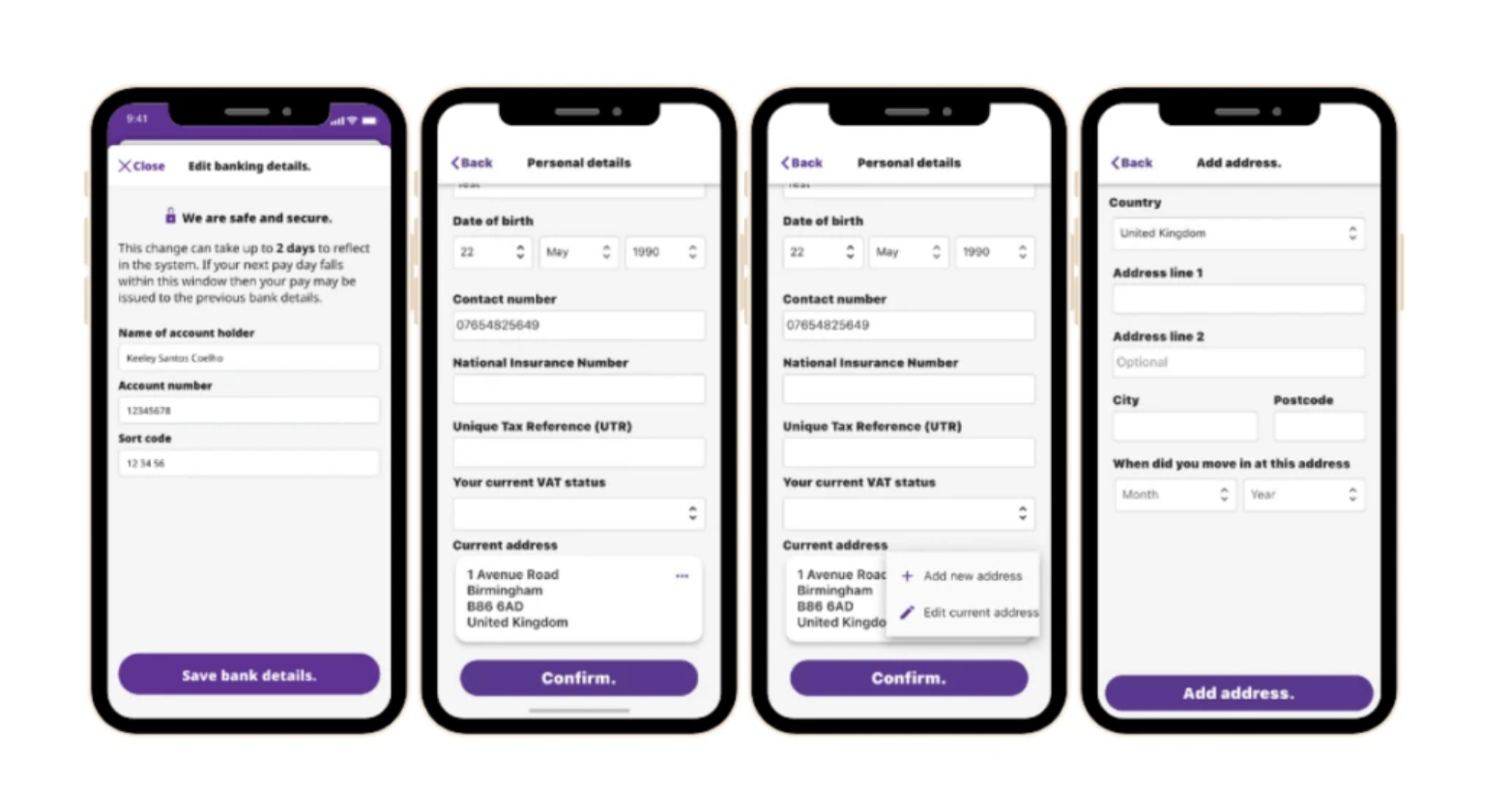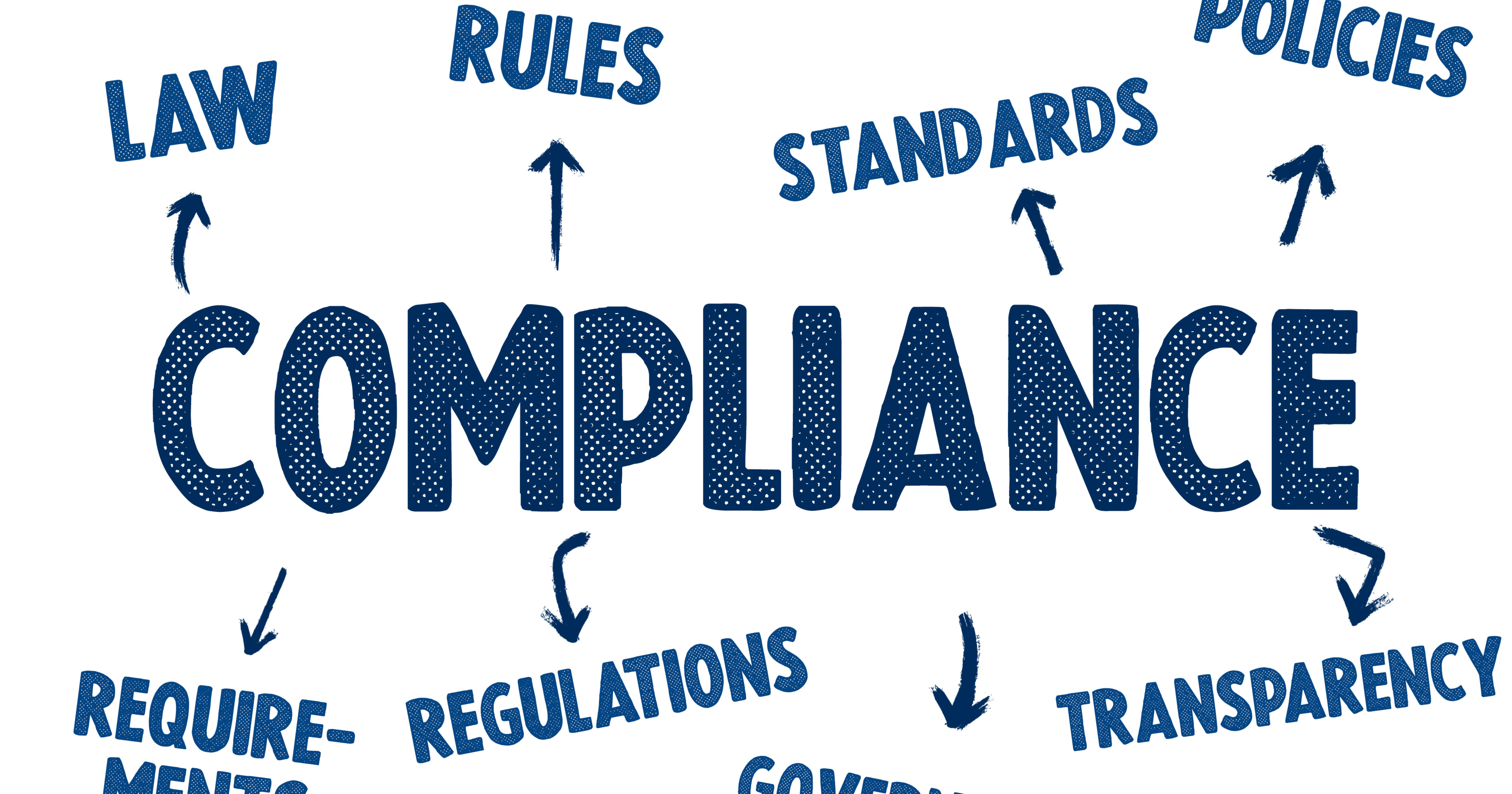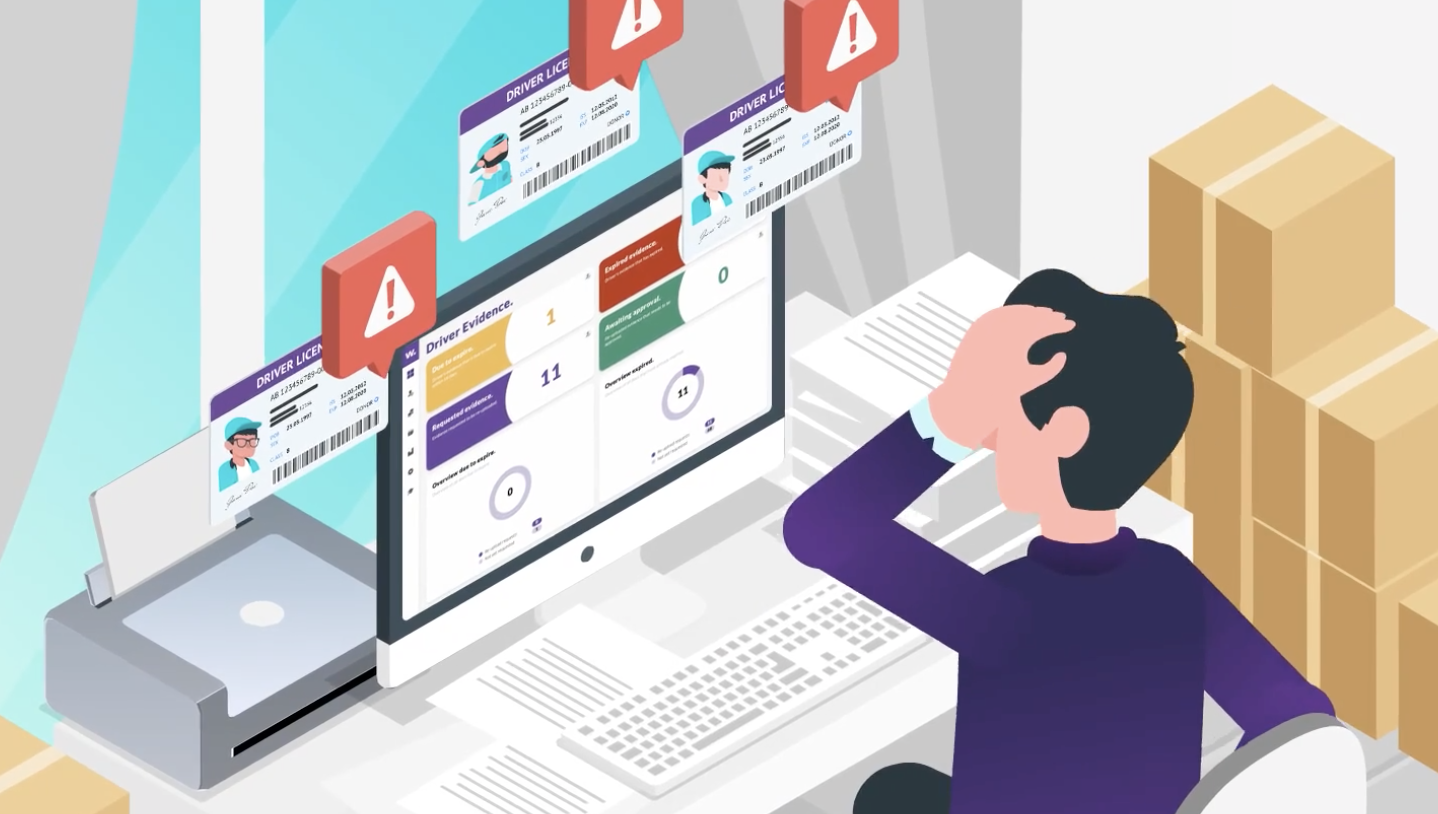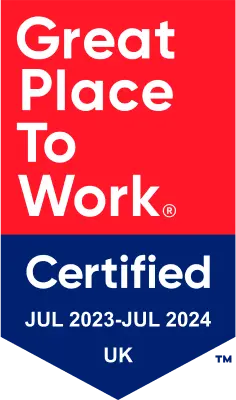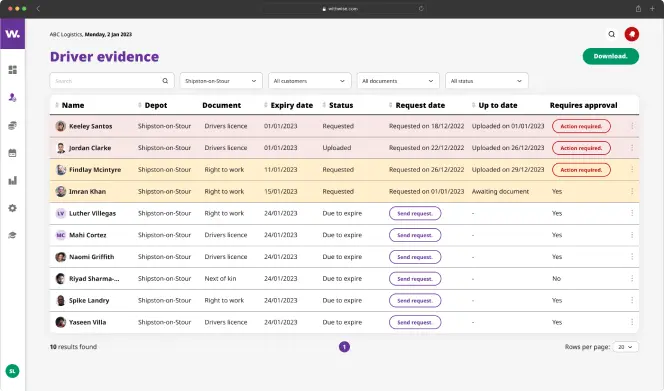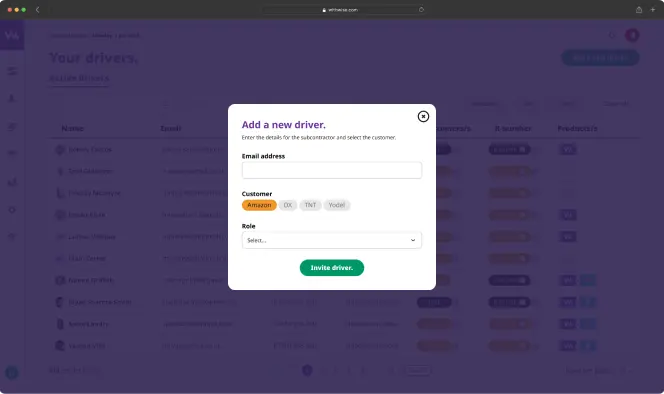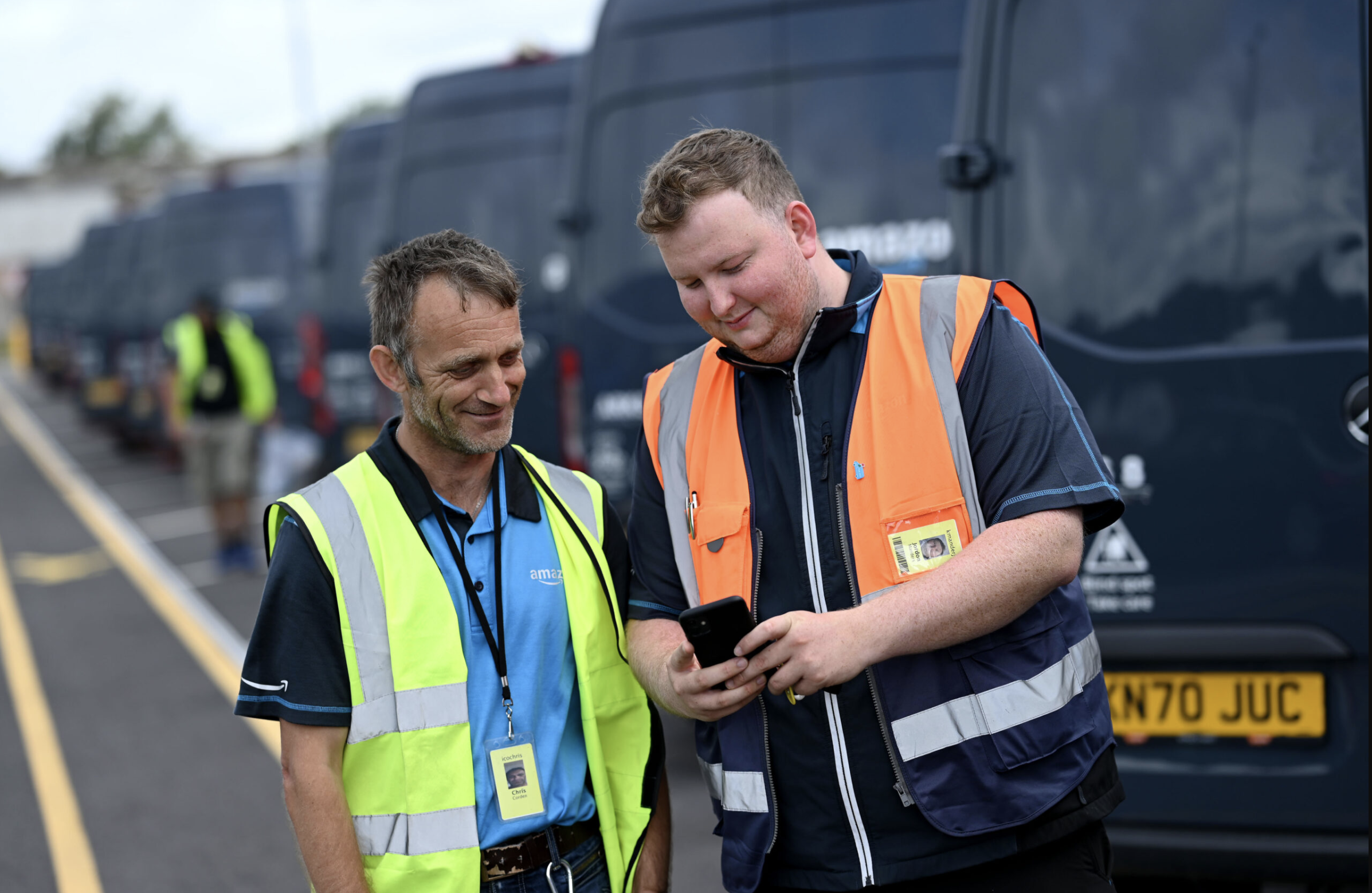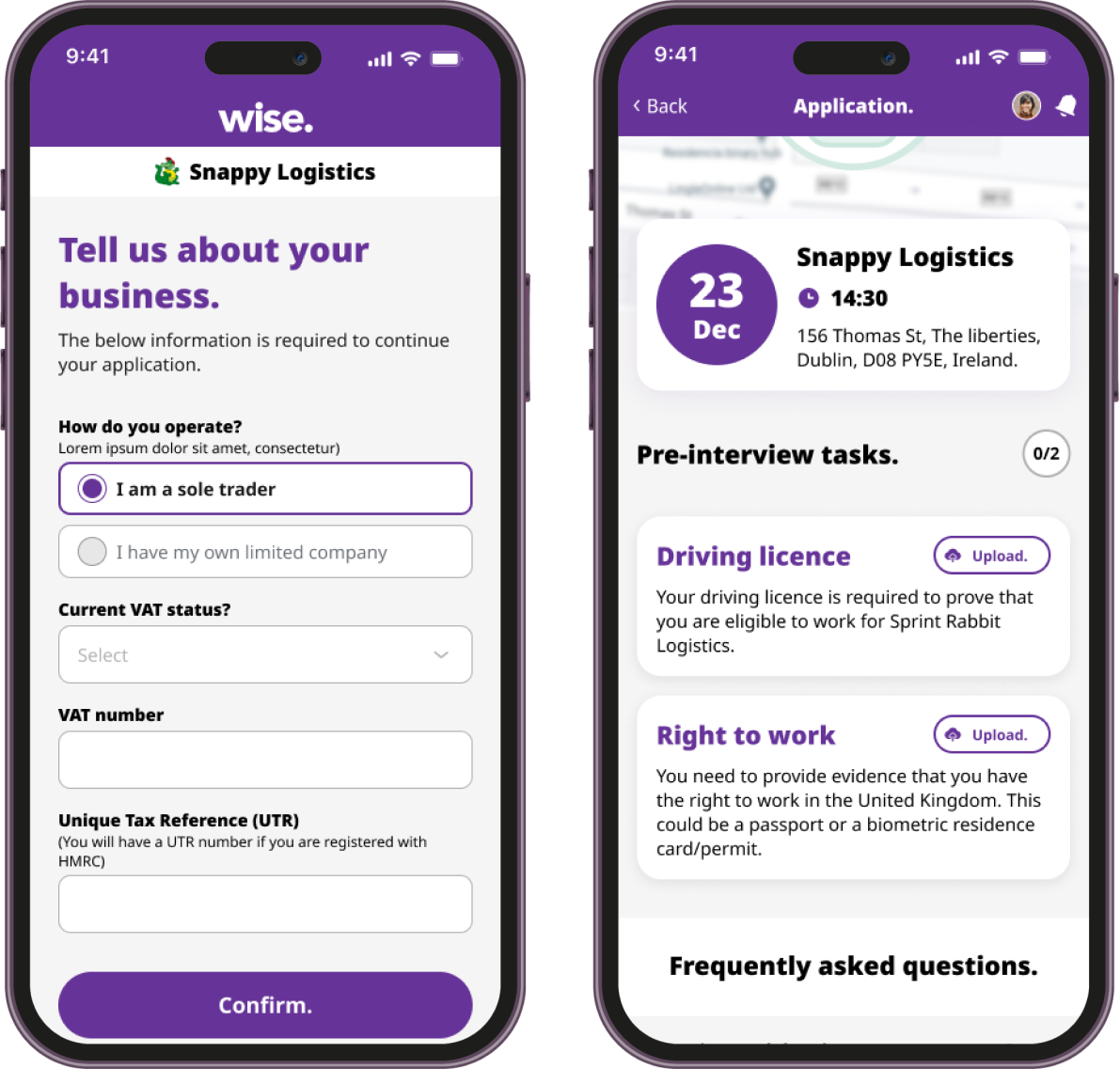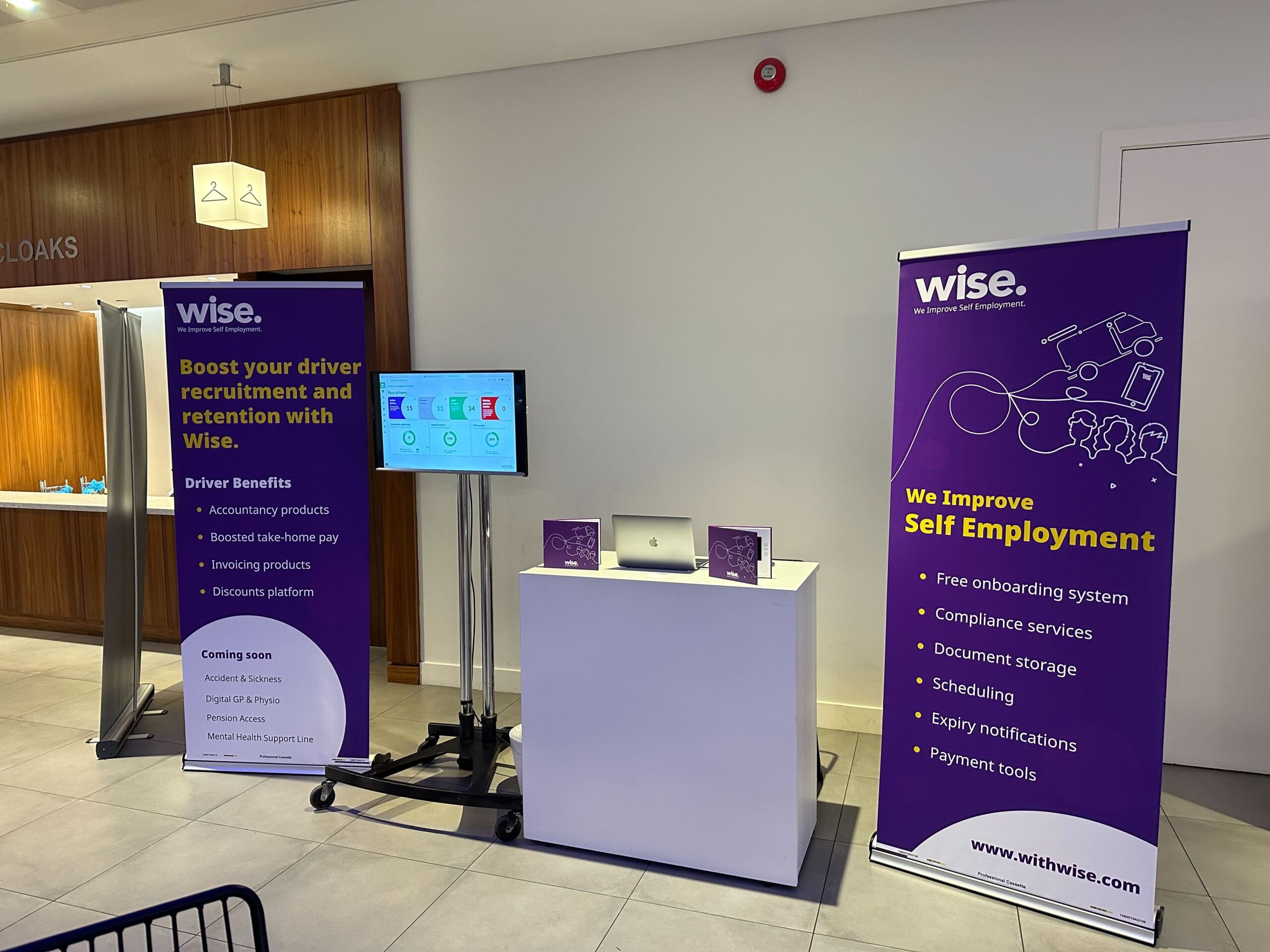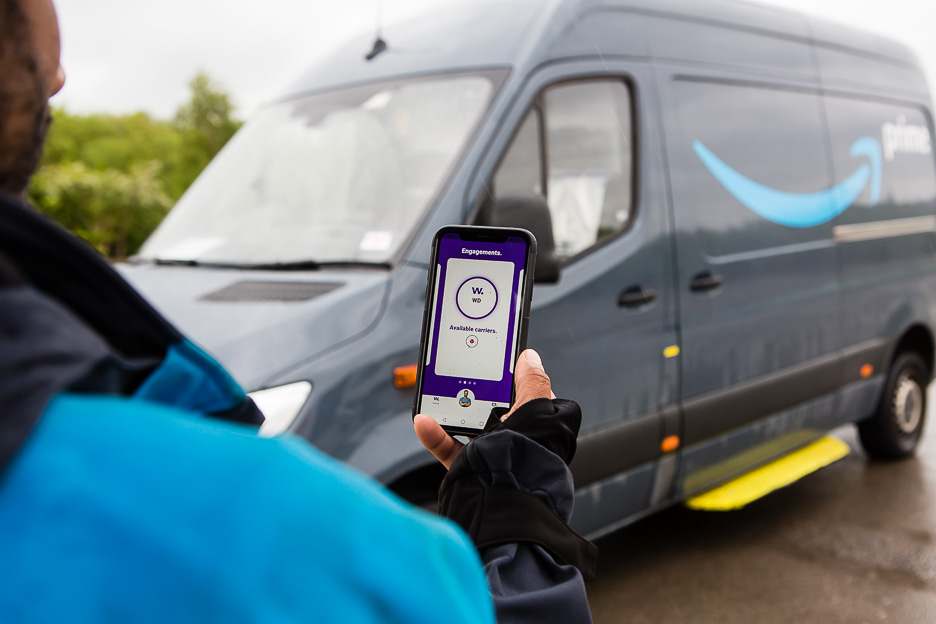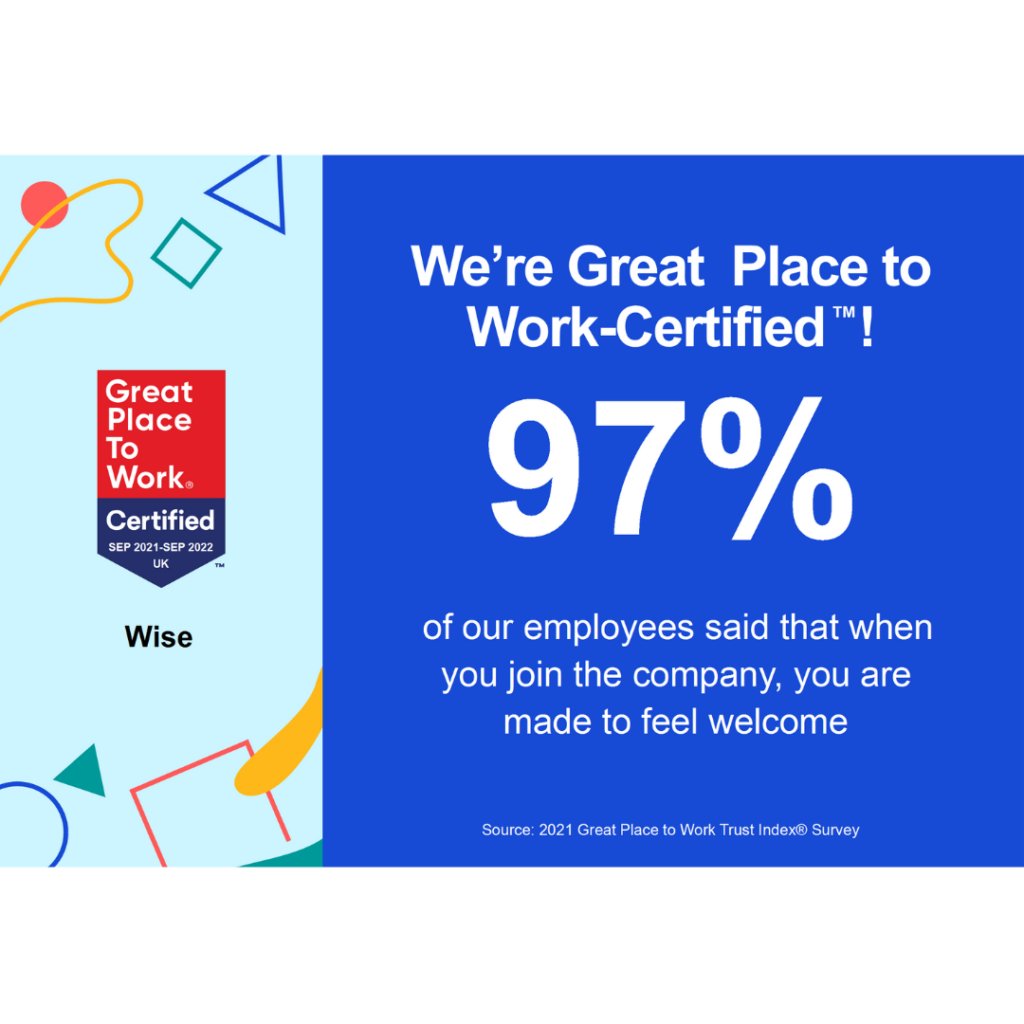What is compliance in logistics?
Compliance keeps logistics businesses aligned with laws, regulations, and industry standards. It’s the framework that supports your operations. However, this means that it needs steady attention to keep everything running smoothly.
Typically, in logistics, staying compliant includes:
- Verifying identification and right-to-work documentation.
- Ensuring insurance and vehicle documents are valid.
- Correctly classifying self-employed subcontractors.
- Completing tax and IR35 checks.
- Protecting data in line with data protection requirements.
- Maintaining up-to-date health and safety standards.
It’s essential that every subcontractor is onboarded correctly and their documents are fully verified before they start work. If not, both you and your subcontractors could face serious penalties and setbacks.
What are the consequences of non-compliance?
Financial consequences
Regulatory bodies such as HMRC and the DVSA take non-compliance seriously. Failing to meet their standards can result in heavy fines.
These issues don’t just stop at the penalties. Ongoing or unresolved compliance failures can also put commercial relationships at risk. Most delivery partners and retailers include strict compliance expectations in their contracts. If your business fails an audit or doesn’t meet the agreed requirements, those contracts can be suspended or terminated. This results in immediate revenue loss and lasting reputational damage.
Additionally, in more extreme cases, fines may be imposed. The severity of the fine depends on the area of non-compliance. For example, incorrect RTW checks can impose a £45K fine for the first offence, and a £60K fine for the second offence per illegal worker.
Legal consequences
There’s more consequences of non-compliance than financial penalties alone.
As an example, worker classification. If subcontractors are incorrectly categorised as self-employed when they should be employees, the repercussions can be significant. Businesses may face claims for unpaid holiday, National Insurance, and pensions. All of these factors can combine and end up eating away at income, and damage trust as well.
Specifically, logistics businesses may end up facing Acas claims or employment tribunals if it’s found that their subcontractors have been wrongly classified as self-employed, when they should have been employed. These consequences can be incredibly costly, rapidly racking up legal fees and settlement pay.
Operational consequences
When compliance procedures fall behind, everything else slows down with them. Time spent fixing errors or chasing missing documents pulls focus away from day-to-day operations. Subcontractors may not be approved to work as quickly, which can end up leaving you short-staffed and struggling to meet schedules. Ultimately, this can end up impacting customer satisfaction.
Audits also have the potential to become a stifling bottleneck. If the right documents can’t be found or verified in time, operations may grind to a halt. These gaps are red flags for regulators, and if they’re not handled properly, they can lead to damaged business operations and hefty fines.
Reputational consequences
Reputation is one of the most valuable assets a logistics business has. But compliance has the potential to ruin this in an instant.
Business partners want to work with companies that demonstrate reliability, professionalism, and a clear capability of following legal guidelines. On the other hand, subcontractors are looking for businesses that handle their contracts responsibly, and keep on top of compliance.
News of compliance breaches or worker misclassification spreads like wildfire. When that happens, potential partners and subcontractors may hesitate to work with you. This can cost you in trust, credibility, and future business opportunities.
Retention and workforce impact
Compliance is about more than just protecting your business. It involves supporting your subcontractors and their rights as well.
When compliance processes break down, frustration quickly builds up. Unclear contracts, delayed accountancy services, and missing documentation can have the potential to disgruntle and upset subcontractors.
If that feeling of dissatisfaction continues to grow, subcontractors are more likely to feel motivated to find work elsewhere. This can leave you understaffed, with low-morale staff, that ultimately affects the quality and reliability of your service.
How to avoid compliance issues
No matter the size of your business, compliance deserves a structured approach. Every logistics company should have a clear strategy in place to stay compliant and reduce risk.
If you’re still relying on slow, manual processes, you’re leaving your business exposed to potentially nasty consequences. To avoid that, here are a few simple but effective preventative steps you can take:
1. Keep your compliance processes in one platform
Where possible, migrate all your compliance processes into one platform. Store all subcontractor information, contracts, and documentation in one place. Disjointed systems slow everything down and increase the risk of missing, duplicated, or outdated records.
Switching to a digital compliance platform gives you complete visibility and control. You’ll know exactly where everything is when audit time comes.
2. Automate repetitive tasks
Automation can take a lot of pressure off of admin teams. Use it for tasks like expiry reminders, document verification, and compliance checks. It removes the need for manual chasing and reduces the risk of anything slipping through the cracks.
Tasks such as driving licence checks can be automated to speed up onboarding and get subcontractors ready for work faster – whilst ensuring accuracy and compliance at the same time.
3. Stay up to date with regulations
Regulations are always evolving. Especially when they involve tax, safety, and employment laws. Keeping up can be a lot of work in itself, which is why it’s essential to work with compliance experts. It’s their job to understand the latest updates and provide you with guidance on current best practices.
By staying informed, you’ll reduce your exposure to risk and ensure your operations continue running smoothly, no matter how regulations might change.
Confident compliance with Wise
Wise is the market-leading onboarding and compliance platform built for logistics and delivery businesses.
We help companies across the industry reduce admin time, simplify compliance, and stay protected from the financial and legal consequences of non-compliance. With Wise, you can manage onboarding, payments, and verification in one easy-to-use platform. This keeps your operations running smoothly.
Here’s how we make compliance effortless:
- Contract review and creation – Our specialist compliance team can review your existing agreements or create new, fully compliant contracts tailored to your business needs.
- E-signature technology and expiry alerts – We make staying compliant simple. Wise automatically reminds your subcontractors every 10 months to re-sign Service Level Agreements, so your contracts never fall out of date.
- Instant audit packs – Need to prove compliance fast? Generate ready-made audit packs for HMRC, clients, or delivery partners in a few clicks — saving your team hours of admin.
- Secure document storage – Keep all subcontractor documents in one secure, central location with unlimited storage. From insurance certificates to right-to-work checks, everything is safely organised and easy to access.
- Expert support on demand – Our in-house compliance specialists are always on hand to offer advice, share best practices, and keep you informed of regulatory changes — helping you stay compliant with confidence. Our team can also provide reliable support with Acas claims and tribunals, saving you from costly battle fees.
Turning compliance into a competitive advantage
There’s more to non-compliance than just fines and operational delays. When left unchecked, it can pose a risk to your entire operation. But when businesses handle compliance effectively, it becomes a real competitive advantage.
With the right systems in place, compliance can demonstrate how reliable and professional your business is. Automating processes with Wise removes the stress of missed deadlines or overlooked errors, all while keeping you fully up to date with the latest legal and regulatory requirements.
The Wise platform gives logistics companies, their partners, and subcontractors full control and transparency over compliance. This ensures smoother operations, stronger trust, and a more secure business environment.
Cut the paperwork,
keep the drivers.
Faster onboarding means more drivers on the road and less time wasted on admin. Wise helps you scale faster without the growing pains.









